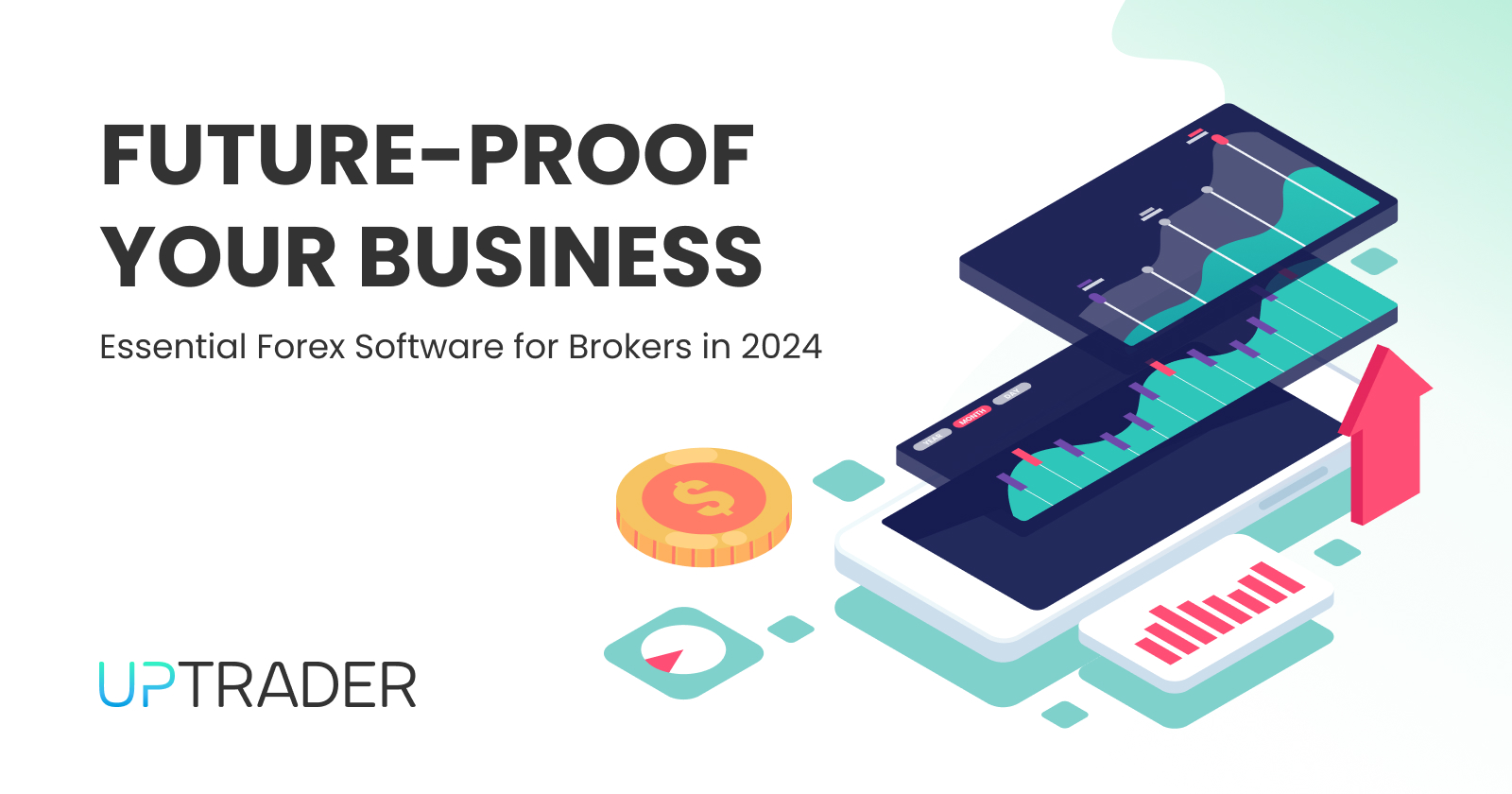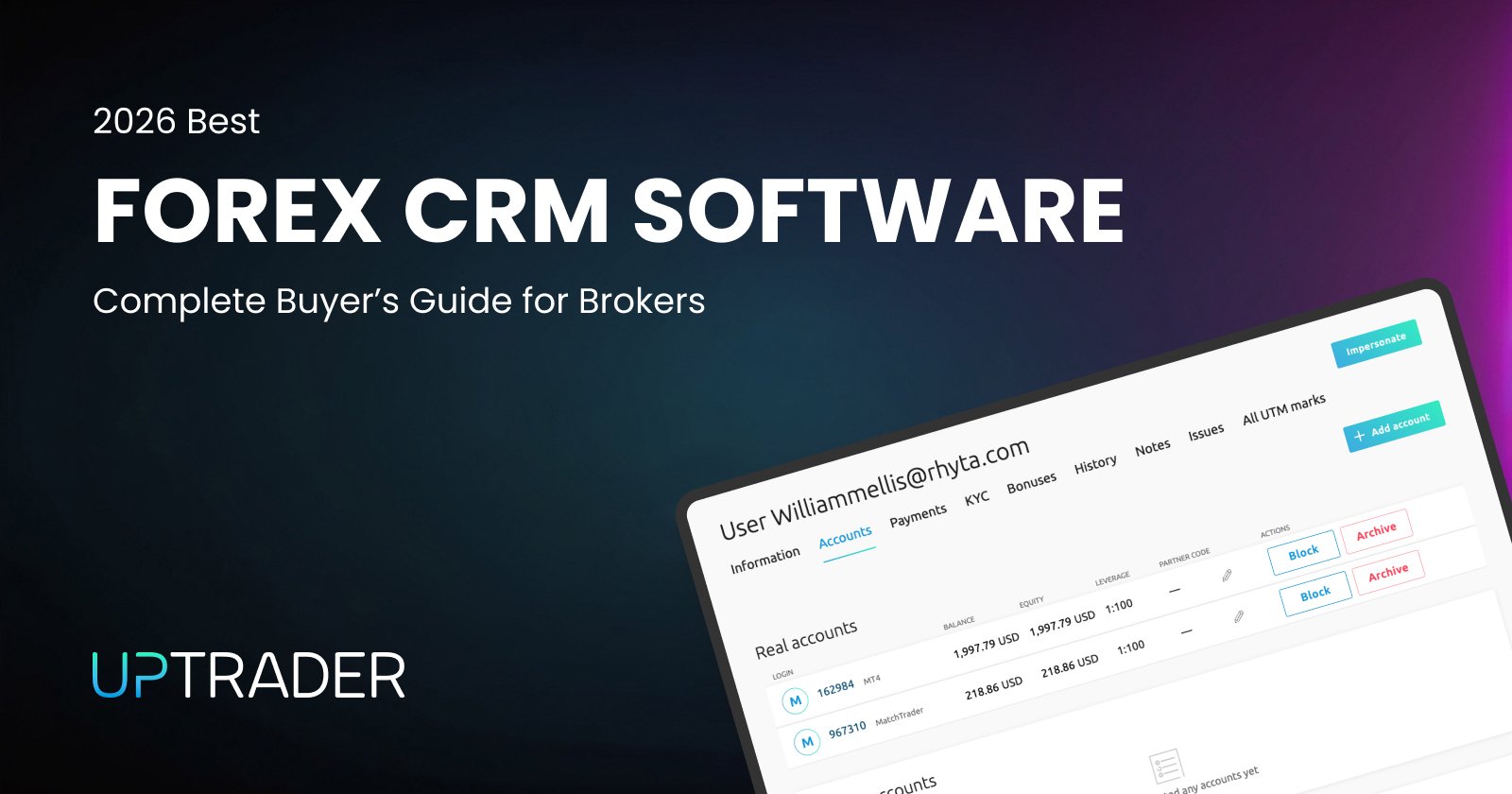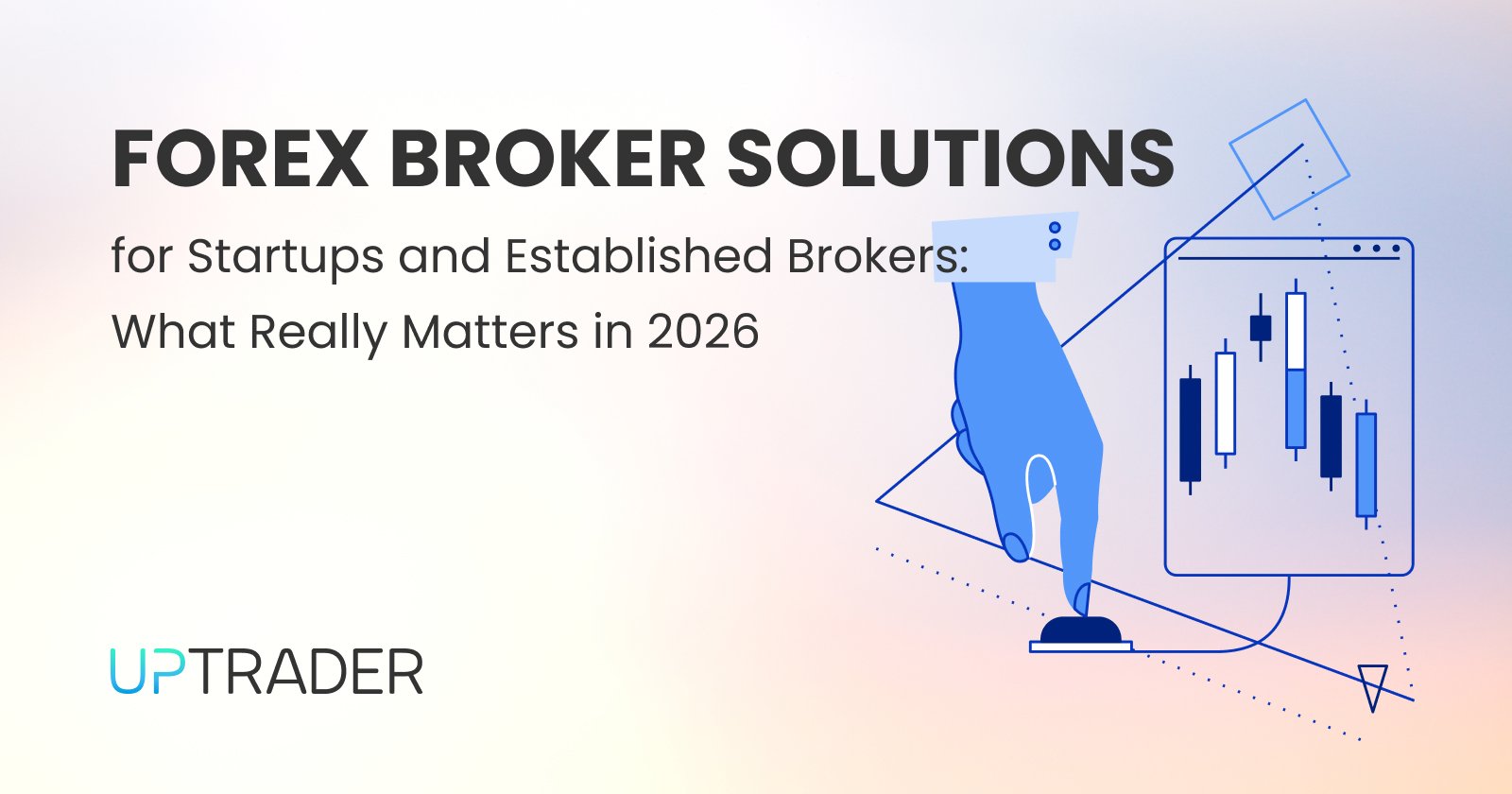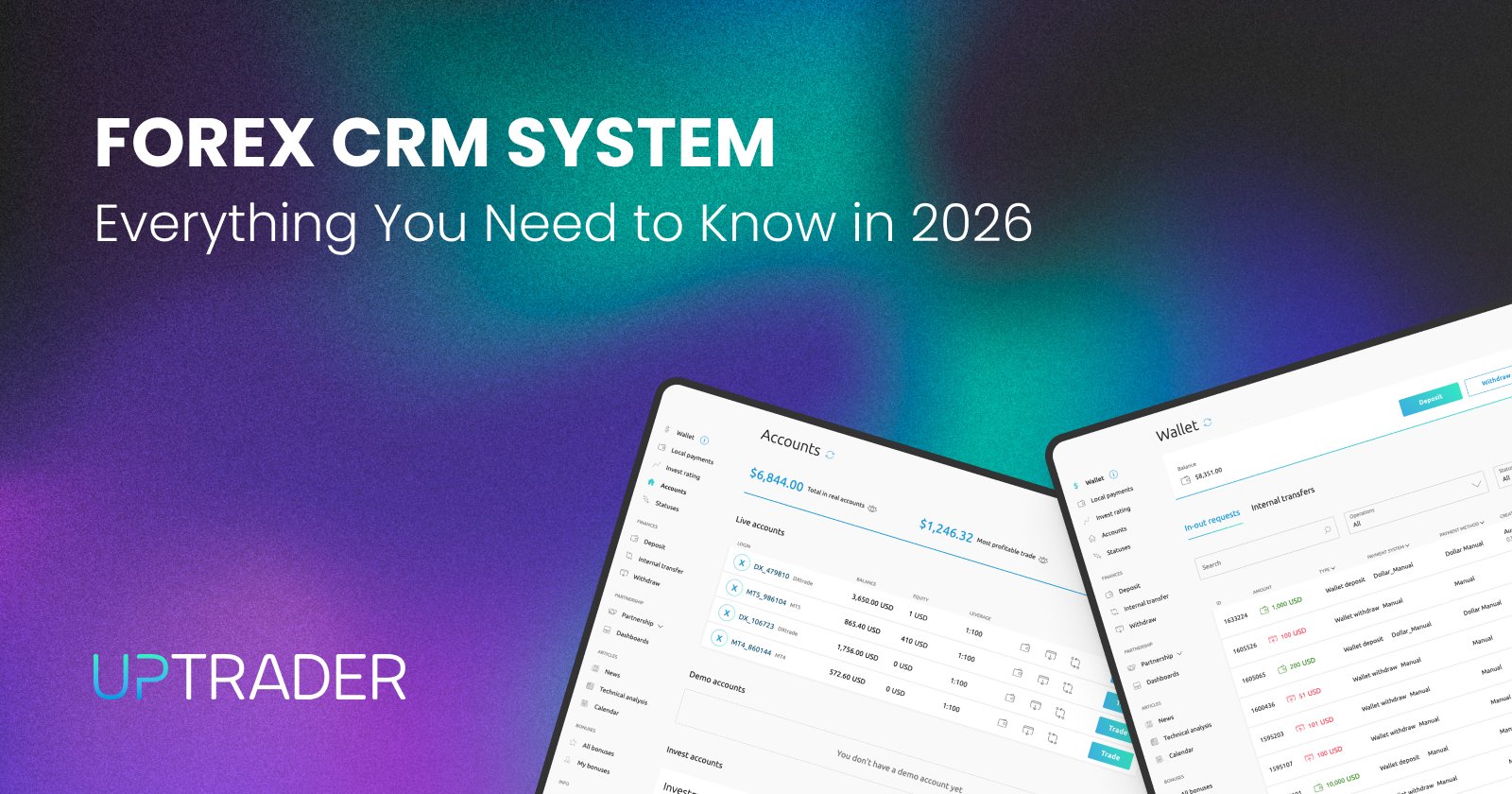Future-Proof Your Business: Essential Forex Software for Brokers in 2024

Share this publication:
The Forex brokerage landscape is more competitive and tech-driven than ever before. Forex brokers must now harness advanced technology to remain relevant, efficient, and compliant. Choosing the right Forex software is critical to streamlining operations, enhancing customer experiences, and ensuring compliance with global standards.
This article covers the essential Forex software that every broker needs in 2024 to future-proof their business — from trading platforms to advanced analytics and compliance tools.
Trading Platforms: The Core of Forex Brokerage
Here’s a look at some essential trading platforms for brokers today:
- DXTrade: DXTrade, is a trading platform by Devexperts known for its outstanding flexibility and customizability. DXTrade is a trading application specifically designed for use by Forex and CFD brokers. It enables a broker to run an entire trading ecosystem with custom back-office agents and a user-friendly interface for clients. Among the strategic elements for Forex brokers’ customer experience are sophisticated graphing solutions, instant analytics, multi-asset capabilities, and this is why DXTrade is highly regarded. With modular architecture, DXTrade enables brokers to select which elements they wish to include with maximum possible gains from their everyday work.
- cTrader: cTrader has some great features with a clean interface which is why it is becoming popular in the Forex industry. It offers multi-asset trading capabilities thus is ideal for brokers who want to provide trading in not only Forex but also stocks, commodities and crypto currencies. Equipped with superior advanced charting tools, algorithmic trading capabilities and user-friendly interface, cTrader is a powerful weapon for brokers to gain the competitive edge.
- Customizable Solutions: As the need for more personalization arises, a lot of brokers are making shifts to using either custom built or adjustable trading platforms. They build these systems so that they can have an experience that is optimal for their market and bears their identity. Making their own trading software means that they can add features that are relevant to their trading experience, interesting tools and graphics that make their clients fond of their brand.
CRM and Client Management: Enhancing Broker-Customer Relationships
Customer Relationship Management (CRM) software is crucial for brokers to streamline client communications, optimize onboarding, and manage client data.
The right CRM can make a significant difference in a broker’s customer acquisition and retention strategies.
- UpTrader CRM: UpTrader is a CRM program that is created for Forex brokers and is aimed at managing clients, automation of sales, and marketing for the forex business. With the use of UpTrader, brokers are introduced to an easy onboarding of clients, the use of automated prospects marketing and tracking of client engagement in real time. The CRM also supports multi-level IBs, has customizable dashboards and reports, and even provides bridges with trading software, therefore this is a broker’s best bet if they are looking to enhance the engagement and retention of clients.
- Forex-Specific CRMs (e.g., UpTrader, B2Core): These CRMs are very much customized to suit the needs of the Forex business. These CRMs have Know Your Customer (KYC) capabilities, auto-enabling reporting, and payment processing thus they help brokers manage work with ease. Some of the systems even allow for the use of multiple languages which is excellent for brokers working in different countries.
- White-Label Solutions: White-label CRM solutions are versatile and growth-oriented especially accommodating brokers in need of market expansion in a very short time. They enable brokerage firms to use the CRM software as their own though it has already been provided with all the features. This helps brokers a lot since they do not have to waste time and energy in building a self contained CRM from the ground up.
Risk Management and Compliance Software: Ensuring Security and Compliance
With increased regulatory scrutiny, risk management and compliance software have become indispensable for brokers. These tools help brokers manage risk exposure, stay compliant with legal standards, and maintain a secure trading environment.
- Autochartist and Signal Centre for Market Analysis: These tools utilize predictions in order to be proactive to the changing trends in the market. Consider Autochartist again, this time with risk measuring functions taking into consideration the current degree of market fluctuations so that the broker can make an effective decision. An alternative is the Signal Centre, which utilizes AI to provide risk and trade information for the broker to counteract any existing market movement.
- Risk Management Systems (e.g., Broker Pilot, Centroid Solutions): These systems have a full range of tools and mechanisms for risk management, monitoring in real time, controlling leverage, analyzing exposure, and so on. These capabilities enable brokers to reduce the hazards arising from trading, which is especially important in the markets laden with risks. Other risk management applications include provision of margin requirements guidelines, liquidy status checking, and profits and losses PnL (Profit and Loss) alerts.
- Compliance Software (e.g., SumSub, Veriff): Automated KYC and Anti-Money Laundering (AML) software ease the process for making back-office operational processes smoother which also includes regulatory compliance during onboarding of clients by brokers. For instance, services offered by Veriff and SumSub enable brokers to enhance identity verification processes and active surveillance for any due diligence red flags without a significant manually driven effort. Such instruments are especially important to brokers whose working environment entails increased compliance.
Advanced Analytics and Business Intelligence Tools: Driving Data-Driven Decisions
In today’s data-driven world, advanced analytics and business intelligence tools are essential for brokers aiming to gain insights into market trends, client behavior, and operational efficiency.
- Trading Central: Trading Central delivers technical research, market analysis powered by artificial intelligence and enhanced by data visualization to facilitate better trading choices. With tools geared toward tangible technical examination, brokers can tap into Trading Central analytics to craft action plans, forecast positive and adverse trends, and enhance client strategies.
- Business Intelligence (BI) Tools (e.g., Power BI, Tableau): BI tools like Power BI, Tableau deliver great data visualization and reporting features. By looking into customer behavior, trading activity, and income growth projections, these applications help brokers in strategic business planning. BI tools are used to avoid the problem of gathering data from different sections which helps brokers in getting a better view of their businesses.
AI and Automation in Forex: Boosting Efficiency and Enhancing Performance
AI and automation play a transformative role in the Forex industry, helping brokers streamline operations, provide superior customer service, and offer personalized trading experiences.
- AI-Driven Chatbots (e.g., Intercom, Drift): Chatbots powered by artificial intelligence (AI) are on the rise as they make it possible for around-the-clock customer support without any human agent attending to the inquiries. The chatbots are able to do a range of activities including answering frequently asked questions or setting up accounts and even analysis of trades without human interference. This decreases production costs but also improves the experience of the client.
- Automated Trading Platforms (e.g., ZuluTrade, DupliTrade): With automated trading platforms, clients can imitate or even copy traders who are experts in the field making it less of a challenge for a novice to trade. Social trading, as UpTrader and DupliTrade, turn out to be beneficial for brokers in that they allow clients to gain experience out of winning plans and still participate in trading activities as practitioners.
- Predictive Analytics: In predictive analytics, machine learning techniques are utilized in anticipating the market, thus enabling brokers to come up with better risk management techniques. Predictive techniques look at both past and live data patterns which offer additional information that aid in the making of better decisions.
Integrating Forex Software for a Seamless Workflow
As brokers adopt various software solutions, integrating these tools is essential for achieving a smooth, cohesive workflow. Middleware solutions and APIs allow for seamless data flow between platforms, such as CRM, trading, and analytics tools, which eliminates data silos and enhances efficiency.
- Middleware and API Integrations: Middleware solutions bridge the gap between separate systems, allowing data to flow between trading platforms, CRMs, and analytics tools. Such a system is especially useful for brokers striving to give clients a fully interactive and multi-functional system while maintaining the order of operational processes.
- Single Sign-On (SSO) Solutions: SSO solutions enable brokers who wish to improve the clients’ login experience across various bodies by creating one login for several websites. In addition, as an advantage of SSO adoption, it enhances the client satisfaction with services offered by the broker and heightens the protection level of the systems.
Conclusion and Final Thoughts
Investment in high-tech foreign exchange software is very important for brokers who want to be competitive in the market in 2024. Such solutions include not only trading platforms or CRMs, but also risk management, analytics or compliance systems, which enables brokers to enhance customer satisfaction, improve internal processes, and remain compliant with the regulators in a proactive way. Given the ongoing transformation of the foreign exchange sector, it is clear that there may be technology trends which will help brokers enhance their operational capacity to ensure business continuity in the future.
If you're looking for a powerful and comprehensive Forex CRM system that covers all these essential features and more, UpTrader CRM is the solution for you. Ready to take your brokerage to the next level? Contact a consultant on our site today to schedule a demo and see how UpTrader CRM can transform your business!







